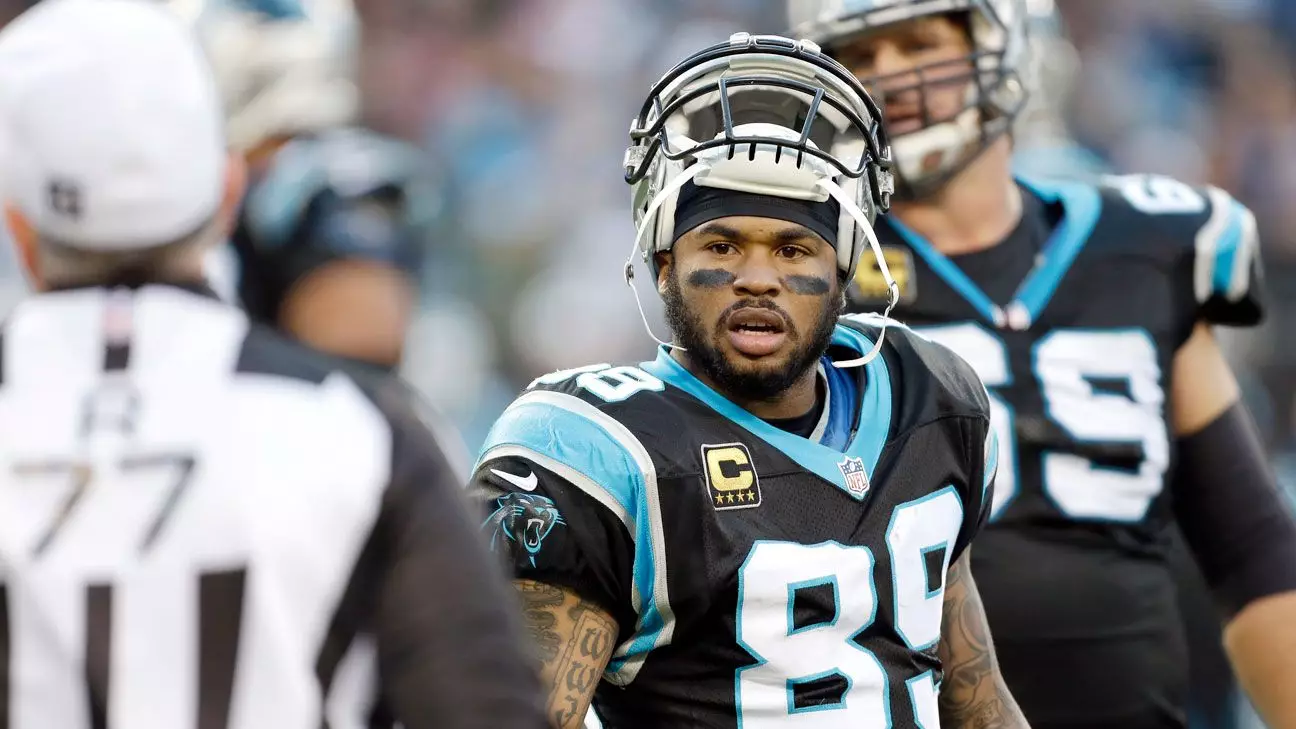The recent exchange between former NFL stars Cam Newton and Steve Smith Sr. presents an intriguing glimpse into the dynamic tensions that can exist within professional sports teams. In an episode of “The Travis Hunter Show,” Newton, a former first overall pick for the Carolina Panthers, expressed his sentiments about the team’s culture prior to his arrival in 2011. He described the players on the previous roster as “losers,” claiming a lack of preparation and a losing mentality. This harsh critique sparked backlash from Smith, one of the franchise’s most revered players, who took to social media to voice his discontent and defend his former teammates. Their dialogue is emblematic of a larger discourse surrounding accountability, leadership, and the reverberations of team culture within professional sports.
Newton’s assertion that he entered a locker room of “losers” can be viewed through both a lens of personal experience and the realities of a franchise struggling through a tumultuous season. The Panthers finished the 2010 season with a dismal 2-14 record, a stark reflection of their challenges. Through his lens, it is reasonable for Newton to characterize the environment as one lacking ambition and competitiveness. Coming into the league as a polarizing first-round pick, Newton’s words reveal the pressures and expectations that come with such a status. This perspective, while valid, inadvertently neglects the complexities of team dynamics and individual contributions that extend beyond surface-level statistics.
On the other hand, Smith’s rebuttal to Newton sheds light on the often-overlooked camaraderie and shared struggles of a team that had experienced immense challenges. He reacted sharply to Newton’s comments by implying that painting the entire team as “losers” undermined the hard work and resilience exhibited by his fellow players during that tough season. For Smith, this is not merely about defending a collective image; it is about recognizing the value and worth of every individual in the locker room. His pointed remarks highlight the emotional weight that such characterizations carry, reminding us that behind each statistic are lives dedicated to the sport, often under circumstances beyond their control.
This skirmish underscores a crucial factor in professional sports: team culture. A locker room’s environment can play a pivotal role in a team’s performance, impacting everything from morale to motivation. Newton’s insights, while rooted in his experiences, may run the risk of overlooking the significance of mutual respect among teammates, especially in a league notorious for its intense pressures and demands. His leadership ultimately helped transform the Panthers’ culture, culminating in successful seasons. Thus, the dialogue begs the question: how do players balance the acknowledgment of past failures with the collective resilience that defines a team?
The conversation initiated by Newton and contested by Smith offers important lessons for current and aspiring athletes, coaches, and team executives. It emphasizes the necessity of fostering a supportive and respectful culture while also empowering leaders to recognize their influence. As Newton aimed to illustrate the difficulties ahead for future top picks in the NFL, Smith’s retort encourages a more nuanced view of what it means to be part of a team, reminding players that their shared experiences—whether in victory or defeat—forge their identities within the sport.
In a world where individual accomplishments often eclipse team efforts, the exchange between Newton and Smith resonates as a timely reminder of the importance of unity within adversity. While Newton’s frustrations echo firsthand experiences, Smith’s defense champions the significance of respect within a professional sports framework. This discourse reveals the layers of complexity in the narratives surrounding sports performance, leadership, and accountability. Just as winning teams learn from their past defeats, ultimately, bridging the gap between individual accolades and collective humility is what propels teams forward, fostering a culture of resilience rather than resentment.

